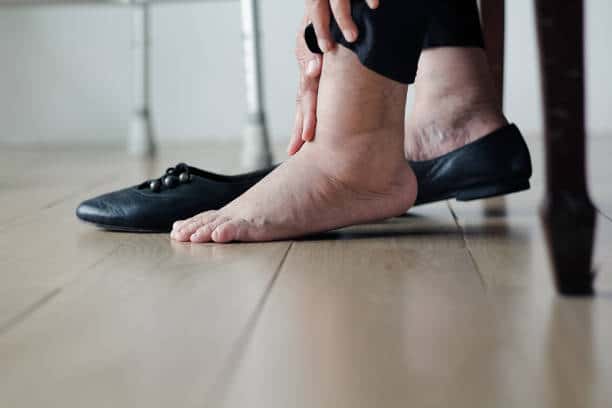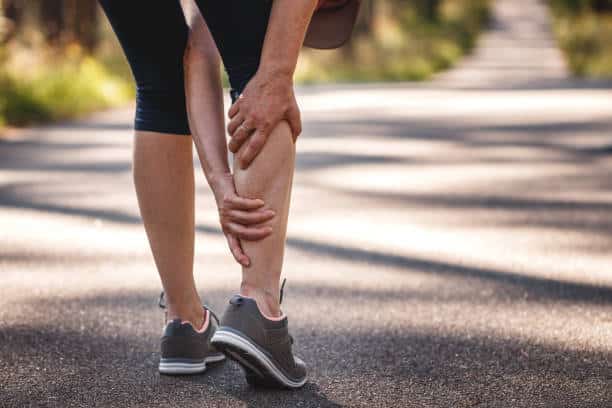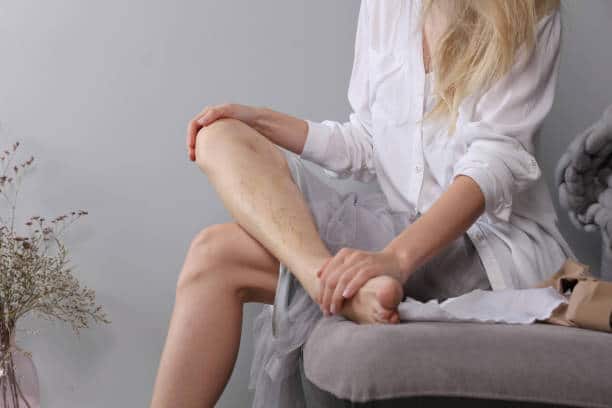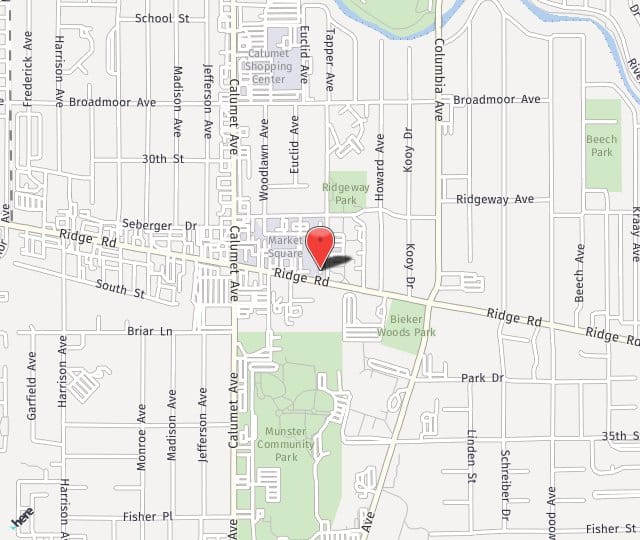If you’re experiencing swelling in your legs and ankles, you may be suffering from vein disease. Vein disease affects many people, particularly if you’re over 50. It occurs when the veins in the legs are not working properly, and blood pools in the legs, causing swelling and discomfort.



At Region Vein, Demetrios J. Karamichos, MD, specializes in treating vein disease and related conditions. Dr. Karamichos and our team of experienced and compassionate vein specialists are dedicated to providing personalized care to each of our patients.
Common Symptoms of Vein Disease
Vein disease, or venous insufficiency, can cause these common symptoms:
- Varicose veins - visible, bulging veins, usually in the legs.
- Spider veins - smaller, web-like veins visible under the skin.
- Swelling - often in the legs and ankles, especially after prolonged standing.
- Leg pain or heaviness - this can worsen after standing and can be relieved with elevation.
- Changes in skin color - skin may become brownish or blue, particularly near the ankles.
- Skin ulcers - severe vein disease can lead to wounds on the legs that don’t heal easily.
Treatments for Vein Disease
Region Vein offers a range of minimally invasive treatments for vein disease, including sclerotherapy, Varithena™, and radiofrequency ablation. These treatments are safe, effective, and require little to no downtime, allowing you to return to your normal activities quickly.
Sclerotherapy
Sclerotherapy is a procedure used to treat varicose and spider veins. It involves injecting a solution directly into the vein. This solution irritates the vein's lining, causing it to collapse and seal shut. Over time, the vessel turns into scar tissue that fades from view.
Sclerotherapy is effective for smaller varicose veins and spider veins. It’s often used for cosmetic purposes as well as improving related symptoms.
Varithena (Polidocanol Injectable Foam)
Varithena™ is a form of sclerotherapy that uses a specially formulated foam called polidocanol. This treatment is used for varicose veins and venous insufficiency (where your leg veins have difficulty sending blood back to the heart). The process involves:
- Injecting the foam into the malfunctioning vein.
- The foam displaces the blood in the vein and directly contacts the vein wall, causing it to collapse.
- The vein then scars down and is eventually absorbed by the body.
Varithena is particularly useful for larger veins or veins that might be difficult to treat with traditional sclerotherapy due to their size or location. It’s a quick procedure that requires minimal downtime.
Radiofrequency Ablation (RFA)
Radiofrequency ablation is a minimally invasive treatment used primarily to treat varicose veins. It involves using radiofrequency energy (heat) to damage and close the walls of the affected veins. Here’s how it works:
- A small catheter is inserted into the vein.
- Radiofrequency energy is delivered through the catheter, which heats the vein and causes it to collapse and seal shut.
- Over time, your body absorbs the treated vein, and other veins take over its blood flow.
This procedure is usually done under local anesthesia, and the patient can typically return to normal activities shortly after.
All these treatments aim to reduce the symptoms of vein disease, improve appearance, and prevent complications such as ulcers or bleeding. The choice of treatment depends on the specific conditions of the veins, the presence of symptoms, and individual patient factors.
What Happens if Vein Disease Goes Untreated?
If vein disease goes untreated, it can lead to a range of complications. Common issues include:
- Worsening Varicose Veins: Untreated varicose veins can become increasingly painful and swollen.
- Skin Changes: Discoloration, rashes, or sores (ulcers) may develop around the affected veins.
- Venous Ulcers: These painful sores typically occur around the ankles and can be challenging to heal.
- Deep Vein Thrombosis (DVT): Untreated vein disease can increase the risk of blood clots, which can be life-threatening if they travel to the lungs.
- Chronic Venous Insufficiency (CVI): Prolonged untreated vein issues can lead to CVI, causing severe pain, swelling, and skin changes.
Early treatment can help prevent these complications and improve quality of life. If you experience symptoms of vein disease, consult with a healthcare provider for appropriate diagnosis and treatment.
How Can I Identify the Cause of My Leg and Ankle Swelling?
To determine the cause of swelling in your legs and ankles, consider the following steps:
- Medical evaluation - A healthcare provider can assess symptoms and history to rule out conditions like heart disease, kidney failure, or vein disease.
- Physical examination - This may include checking for signs of fluid buildup or changes in skin appearance.
- Diagnostic tests - Such as ultrasound scans, can identify any malfunctioning valves or blood clots in the veins.
At Region Vein, we offer comprehensive diagnostic services to identify the underlying cause of your leg and ankle swelling. Our team uses the latest ultrasound technology to diagnose vein disease and determine the best treatment plan for you.
Frequently Asked Questions
Who Is Prone to Vein Disease?
Certain factors increase the likelihood of developing vein disease:
- Age - Older adults are more vulnerable as the vein valves experience degeneration over time.
- Gender - Women are more likely to develop vein disease, possibly due to hormonal influences.
- Family history - Genetic factors can play a significant role.
- Obesity - Extra weight can increase the pressure on veins.
- Pregnancy - During pregnancy, veins may be impacted by hormonal shifts and a higher blood volume.
- Prolonged standing or sitting - This can impede proper blood flow.
Do the Treatment Options Come With Risks?
While treatment options for vein disease are generally safe and effective, each comes with potential risks. Here's what you should know:
- Sclerotherapy: Bruising, swelling, redness, and temporary skin discoloration. Rare complications include blood clots, inflammation, and allergic reactions.
- Varithena™: Mild discomfort, bruising, and swelling at the injection site. Rare risks include blood clots, allergic reactions, and skin ulcers.
- Radiofrequency Ablation (RFA): Bruising, swelling, numbness, and discomfort along the treated vein. Rare complications include skin burns, blood clots, and nerve damage.
Can Running Cause Swelling in the Legs and Ankles?
Running and other forms of high-impact exercise can sometimes cause swelling in the legs and ankles. This is typically due to increased blood flow to the extremities and temporary pooling of blood due to the impact and strain on the veins. However, regular, moderate exercise like running can actually improve circulation and vein health over time, reducing the risk of chronic swelling.
Is Vein Disease Preventable?
Preventing vein disease isn't entirely possible, but there are several steps you can take to reduce your risk and promote healthy veins. Here are some tips to help prevent vein disease:
- Stay Active: Regular exercise, such as walking, swimming, or cycling, helps improve blood circulation and strengthens your veins.
- Maintain a Healthy Weight: Excess weight puts additional pressure on your veins, so maintaining a healthy weight can reduce your risk of developing vein disease.
- Elevate Your Legs: Elevating your legs when sitting or lying down can help improve blood flow and reduce pressure on your veins.
- Avoid Prolonged Sitting or Standing: Try to change positions frequently to avoid putting too much pressure on your veins. If you have to sit or stand for long periods, take breaks to walk around and stretch.
- Wear Compression Stockings: Compression stockings help improve blood flow and can reduce the risk of vein disease, especially if you are at higher risk.
- Eat a Healthy Diet: A diet rich in fiber, low in salt, and full of fruits and vegetables can help maintain healthy veins and reduce the risk of vein disease.
- Avoid Tight Clothing: Tight clothing can restrict blood flow, so opt for loose-fitting clothes that do not constrict your legs.
- Hydrate: Staying well-hydrated is important for overall vascular health.
While these steps can help reduce your risk, some factors, like genetics, age, and hormonal changes, are beyond your control. If you have concerns about vein disease, it's a good idea to consult with a healthcare provider for personalized advice and potential treatments.
What Payment Methods Are Accepted for Vein Disease Treatment?
Region Vein accepts various payment methods, including CareCredit, Visa, and MasterCard. Payments can be made through their online portal, InstaMed. CareCredit is a healthcare credit card offering special financing options for medical expenses not covered by insurance. To apply for CareCredit, visit their website. InstaMed provides an easy way to manage and pay bills online. For more information, visit Region Vein's payment options page.
Why Choose Region Vein?
At Region Vein, you receive top-notch care combined with compassion. Our team, led by Dr. Karamichos, is comprised of experienced professionals dedicated to improving your leg health. Each team member is extensively trained in the latest minimally invasive techniques, ensuring personalized and effective treatment.
Dr. Karamichos is a board-certified physician specializing in venous and lymphatic medicine. He offers individualized care plans addressed to your needs. He is also a Registered Vascular Technologist (RVT) and Registered Physician in Vascular Interpretation (RPVI) with years of experience in the field. He’s committed to taking care of each patient, personally managing each treatment plan.
Choose Region Vein for expert care right in Northwest Indiana.
Schedule Your Consultation With Our Vein Specialists Today
If you are experiencing leg and ankle swelling, you don’t need to suffer in silence. Call 219-595-3095 or contact us online to schedule your consultation with a vein specialist at Region Vein. We are committed to helping our patients in Munster, Indiana, achieve healthier, more comfortable legs.


